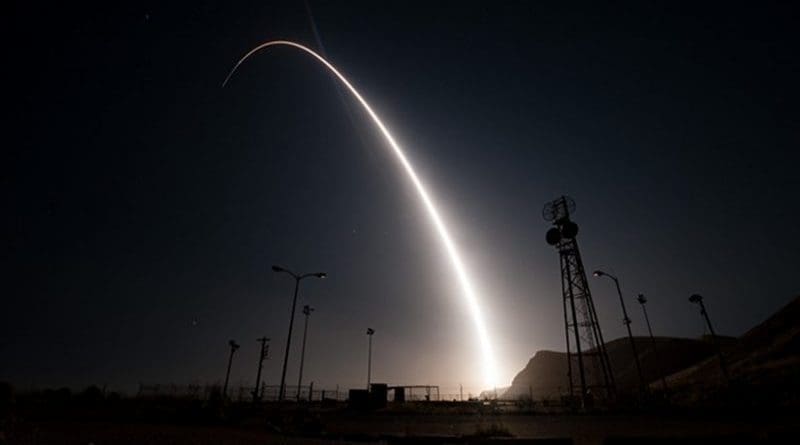New START Talks Offer Hope Of Expanded Arms Control Regime – Analysis
The Trump administration pursues international arms control by tearing up treaties because of Russian violations or because they have become outdated due to technological advances or the behavior of adversaries who cannot adhere to them. The casting aside of the Intermediate-Range Nuclear Forces Treaty was critical to resetting that particular range of missile class with various assortments of engine types and warheads. This approach is willy-nilly for some arms control stalwarts, but they fail to see that these treaties are from another era.
All is not lost for naysayers, because there is an opening for building on the framework of an extension to the New START (Strategic Arms Reduction Treaty). With the 2010 New START set to expire in February 2021, now is the time to begin a follow-up to this process that can transcend the result of the 2020 US presidential election. With inauguration day set for January 2021, the expiration date of New START becomes ever more important.
New START is the only remaining strategic nuclear arms control agreement in place between the US and the Russian Federation. President Barack Obama negotiated it with Moscow and it was approved by the Senate by the constitutionally required two-thirds majority. It limits both sides to no more than 1,500 strategic nuclear weapons on no more than 700 launchers.
Moreover, New START provides the US with irreplaceable access to and information about Russia’s nuclear arsenal. Both signatories are fully complying with the agreement, as verified by the US intelligence community. The agreement can be extended by executive agreement for up to five years — a step that would not require further congressional approval.
Meanwhile, holding on to New START is in Russian President Vladimir Putin’s interest. For Russia, a continuation of negotiations in this arena helps to interact with the American side, which will be under increasing scrutiny as the presidential election nears and Washington looks for any whiff of outside influence. The necessity to keep discussions on track without outside interference will be crucial to the negotiation process. It is notable that all major US allies enthusiastically support a New START extension, regardless of the politics of the moment.
Under New START, Russia is continuing to honor the provisions of the treaty by showing to US inspectors the new Avangard hypersonic missile system. The Avangard (SS-19 Mod 4) is one of Russia’s newest missile systems. It was announced by Putin in 2018, when he commented that, in a nuclear war, “Russians will go to heaven… and everyone else will simply die.” This missile system uses a “glider” that adds maneuverability.
New START meetings between the US and Russia have been quite open about the conditions for continuing the negotiations, including seeing any new weapons such as the Avangard. Moscow including all of its newest weapons is one of the conditions for the treaty’s extension. However, according to some arms specialists, this may be impossible from a purely technical point of view. There are no definitions in the treaty that would apply to Russia’s other new weapons systems, such as the nuclear-powered, unmanned underwater vehicle, the Poseidon; the nuclear-powered, unlimited-range cruise missile, the Burevestnik; or the hypersonic aero-ballistic missile, the Kinzhal. These issues will need to be worked out as negotiations move forward.
Moscow’s arms negotiators are ready to extend New START for five years, which is useful for the US side. At this month’s NATO summit in London, US President Donald Trump said: “Russia wants to make a deal very much on arms control and nuclear. And that’s smart. And so do we. We think it would be a good thing.” Putin reiterated this message during a meeting with his security council, saying: “Russia is ready to extend the New START treaty immediately, before the year’s end and without any preconditions.” However, negotiations will almost certainly carry into 2020.
What may be forthcoming is to build on New Start with a separate arms control deal with China. This triangulation on arms control between the US, Russia and China is seen as a strategic necessity based on technical advances by all three countries, but also the fact that Beijing now needs to be included in these processes.
Overall, arms negotiations between nuclear-armed states are a strategic necessity. New START has room in which to grow a new set of measures to adhere to arms control and halt proliferation. What we may see is that Beijing might agree to a follow-on treaty that sets limits well below those of New START — if China agrees not to increase the size of its stockpile and adopts some transparency measures. Although a trilateral deal cannot be completed between now and 2021, there could certainly be a potential deal by 2026 and, depending on the deployment dates of high-tech nuclear weapon systems, that is worth pushing for in terms of negotiations in the short term, no matter how toxic the atmosphere.

